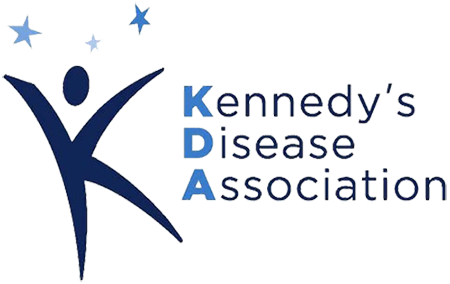Surgery Concerns - Anesthetics
The links and articles below provide information and warnings that should be taken into account before Surgery if you have KD. These links are provided for informational use only. Please check with your doctor to see which is right for you.
- Coping with Anethesia
- Anethesia Medical ID Card
- Case Report - Using an Epidural Anesthesia during surgery for patient's with KD
- Case series: anesthetic management of patients with spinal and bulbar muscular atrophy (Kennedy's disease).
- Use of Epidural anesthesia for surgery in a Kennedy's Disease patient
Important: A known issue has been reported by Dr. Neil Porter. Do not use SUCCINYLCHOLINE (generic name). Brand names include Ancetine and Quelicin. Please have your medical file updated. This drug could be life threatening for a person with Kennedy's Disease.
Anesthetics
by Dr. P.J. Halsall and Professor F.R. Ellis
People with neuromuscular disorders must take great care if they are to have a local or general anesthetic. Even someone with very mild, or non-existent symptoms, or someone who has a family history of a disorder, needs to let the anesthetist know well in advance so that tests can be carried out and proper care after the operation can be arranged.
Many people are afraid of having an anesthetic, mainly through ignorance, but when we look at the rate of complications and even deaths arising from anesthesia we see that it is in fact very safe. This safety is the result of a thorough understanding of the patient's medical condition with a careful assessment before the operation, marked technical improvements in monitoring facilities such as High Dependency Units (HDU) and Intensive Care Units (ICU).
Patients with neuromuscular disorders (NMDs) deserve special attention when it comes to anesthesia because many of the agents used (gases and chemicals) have effects on both muscle and nervous tissue. The main areas of concern are how the anesthetic agents will affect the muscle and how they will affect the heart which is itself a muscle. A skeletal deformity such as scoliosis, or curvature of the spine, can also affect the way the patient responds to anesthesia so it is important to consider that too.
Anesthetics and the heart:
An article printed in the Winter 1995 No. 20 edition of The Search showed how people with NMDs can sometimes have associated heart disease. This can occur as a cardiomyopathy, when the heart muscle doesn't work effectively, or as a defect in the way the electrical activity of the heart is transmitted, a conduction defect. The anesthetic vapors, the smelly agents such as ether and halothane which are inhaled, can reduce the effectiveness of the heart's muscle contractions and also aggravate any conduction defect. The vapors are all slightly different from each other, some having more effect on the heart than others. So it is important that the anesthetist makes a
good assessment of the heart's condition before the operation which would include the level of physical activity that the patient can manage, and an ECG. Occasionally a more extensive assessment is needed.
Anesthetics and breathing:
Doctors need to measure how weak the patient's muscles are, usually by assessing the amount of physical activity that the patient can perform, and by taking a blood test to measure levels of a muscle enzyme, creatine kinase (CK). Any anesthetic agent which affects the muscles will also affect the muscles we use to breathe. Strong analgesic or sedative agents will affect these muscles indirectly, and muscle relaxants will have a direct effect on them. As breathing (or respiration) may already be difficult for patients with NMDs, these drugs should be used cautiously, and monitoring of breathing after the operation is absolutely essential. As a result, the patient is
usually best cared for in a High Dependency Unit or Intensive Care Unit immediately after the operation. The muscles used for swallowing can also be affected which is another reason why good post-operative care is
important.
Muscle Relaxants:
Muscle relaxant drugs should only be used if essential because they tend to have a more profound and prolonged effect in NMD patients compared to other patients. One type of muscle relaxant, called suxamethonium, should usually be avoided. It causes the release of potassium ions (K+) from the muscle tissue into the blood. In normal patients this is usually of little practical significance. In patients with NMD the muscle may normally leak K+ so that a further increase in the levels of K+ in the blood may cause abnormal heart rhythms. A preoperative blood test to check K+ levels is therefore important.
Local anesthetics:
A local anesthetic works by preventing the normal electrical activity in the nerve around which the anesthetic agents are placed. For minor procedures, such as stitches for cuts, they are probably the first choice for patients with NMD because they have few if any side-effects. However for major local anesthetic techniques, e.g. spinal or epidiural, careful assessment of the patient is needed and the type of NMD considered well before the operation.
Local anesthetics: Changes in body temperature and preoperative 'starvation':
Patients with NMD do not tolerate changes in body temperature or the starvation often associated with anesthesia or surgery as well as normal patients, so steps need to be taken to minimize these problems by keeping the patient warm and well hydrated using drips.
Malignant hyperthermia (MH) and Central Core Disease:
Malignant hyperthermia (MH) is an inherited disorder which causes an unexpected, sometimes fatal, reaction in the patient to certain anesthetic drugs. Because some patients with NMD have sometimes experienced similar problems during anesthesia there have been claims that patients with NMD may also have MH. However, it is generally accepted that the only neuromuscular condition truly related to MH is Central Core Disease (CCD), although this is not always the case. Patients with CCD should be considered potentially susceptible to MH unless proved otherwise by a special type of muscle biopsy which screens for MH.
To sum up:
Clearly anesthesia in NMD is not to be undertaken lightly. Such patients should expect the anesthetist to make a careful and thorough assessment of their particular condition and their current state of health. They are not suitable to be treated as 'Day Cases' because doctors should carry out preoperative investigations, and enough time and recovery facilities should be available after the operation. It is absolutely essential that the person affected by NMD should inform the anesthetist even if there are only minor symptoms, or no symptoms at all. Occasionally a neuromuscular disorder in a person who had no symptoms has come to light only because of an unexpected problem with anesthesia, particularly in young children.
The anesthetist should also be warned if there is an inherited NMD in the family. If possible ask for the anesthetist to be forewarned before admission to hospital and consider wearing a Medic Alert bracelet or similar in case of accidents. It is always a good idea to make sure hospital staff have copies of Fact Sheets about your condition, and if you are going to have an anesthetic you could show your anesthetist this article.
The authors, Dr. Halsall and Professor Ellis, work at the Academic Unit of Anesthesia, St. James University Hospital, Leeds.
Reprinted with permission from The Search magazine, Winter, 1996 issue, published by the MDA-UK, and the April-May, 1997 issue of Living Smart.
More Info on Anesthesia and Kennedy's Disease
By: Linton C. Hopkins M.D.
KD patients may have significant weakness of respiratory muscles and not know it, so they don't report it pre-op. Then after surgery, with the ordinary chest or abdominal pain that follows so many operations, they find it impossible to take an adequate breath or cough well enough to clear secretions. This can quickly lead to hypoventilation & pneumonia. Everyone who is not confident about the strength of their cough and sniff
should warn their doctors and ask for pre-op pulmonary function and instructions about incentive spirometry and other ways to minimize the risk.
I'm unaware of specific drugs to avoid other than using as small a dose as possible of muscle relaxants like succinylcholine which also affect respiratory muscles, but the surgeon must have good access to the disease, so it's not a good idea to say the drug can't be used. Surgeons and anesthesiologists know about myopathies and neuropathies, even though few will have heard of KD, which is such a rare "neuropathy", or anterior horn cell disorder.

